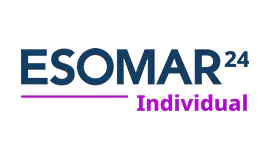Impact of Coronavirus (Covid-19) Pandemic on Automotive Industry
COVID-19 has significantly disrupted the global automotive industry. The threat of COVID-19 crisis is perceived to be larger than the 2007-2008 global financial crisis (GFC). The automotive industry has seen disruption across vehicle production and supply chain, causing a temporary shutdown of many major automobile production facilities. This is attributed to factors including nationwide lockdown, sealed international border, and short term imbalance in demand. India’s vehicles and components export to Europe and North America are stalled and India’s export market has witnessed a fall of US$ 9 Billion in first quarter of 2020. Moreover, in China, about 75% of auto production is directly affected by shutdown with a larger impact on suppliers of automotive components. Moreover, the pandemic has also hampered shared mobility sector and ride-hailing services have tumbled drastically. In the U.S., demand for Lyft and Uber plummeted by over 80% in April from pre-COVID levels.
Post March 2020, over 95% of the auto manufacturing facilities in Europe and about 90% in North America have halted. Owing to which over 20% of vehicle sales is observed to decline in 2020 over 2019. Due to such nosedive auto companies are struggling to make payroll which further led to high unemployment and pay-cut. This in turn resulted in declined production and less demand for new vehicles.
According to Coherent Market Insights’ analysis, the COVID-19 outbreak will decrease growth of the automotive industry. The global auto sales is analyzed to plummet more than 12% from 2019, to 78.8 million units in 2020.
Coherent Market Insights (CMI) have closely analyzed impacts of COVID and proposed exclusive guidelines for automotive companies to withstand in the COVID-19 pandemic. As per Coherent Market Insights’ analysis, COVID-19 crisis will change consumer preferences remarkably. Home quarantine and social distancing is the major driver of change and will continue to hold its significance in the near future, with consumer reconsidering their transport modes to avoid the risk of infection. For instance, during March to April 2020 across major cities of China public transport including subway and bus ridership drops, and biking, private cars and walking has been preferred mode of commutation as against public transport and the trend is anticipated to persist in near future. Whereas, automotive aftermarket is expected to witness slower growth in the near future, and this is attributed to high reliance of consumers on their old vehicles. Reliance over old vehicles would create need of frequent maintenance and repair services of these vehicles. Automotive supply chain companies which are innovative and offer decentralized supply chain networking are expected to remain resilient during the pandemic. For instance, implementation of Blockchain technology leverage more visibility across the supply chain. This in turn helps OEMs to track the shipment and take corrective measures to decrease the market time of the finish goods. Furthermore, decentralized supply chain features less dependency over other supply chain nodes and this in turn would help companies to perform the operation seamlessly and reduce transit time of finish goods or raw materials. Furthermore, online sales channels across global automotive industry are expected to see growth in the short term on account of benefits offered including contactless sales process and social distancing measures
Comparative Analysis - 1
Pre-Covid-19 Vs Post Covid-19 - Market Estimates, 2020 – 2021

Comparative Analysis - 2
Pre-Covid-19 Vs Post Covid-19 - Market Estimates, 2020 – 2021
Marginal Growth
- Automotive Aftermarket
High Gainers
- NA
Marginal Loss
- Shared Mobility
- Automotive Components
High Losers
- Commercial Vehicles

Senior Consultant
ICT & Automotive Research

Senior Consultant Level 1
ICT Research
- OEMs including two wheeler, passenger cars, and commercial vehicle manufacturers need to implement digital sales channels to enhance engagement with customers, as offline lead generation and sales promotion activities have been deeply impacted by the COVID-19 crisis.
- Automotive companies need to focus on cash liquidity and to maintain it. Companies need to comprehend key cash drivers and current cash position, prepare weekly payment plan, and classify the payments into statutory payment, contractual payments, and discretionary expenditure.
- To ramp up manufacturing, OEMs should focus on core business competencies and ensure optimal usage of resources for core business operations. Moreover, OEMs should enable safety features at workplace comprising hygiene and healthcare services.






